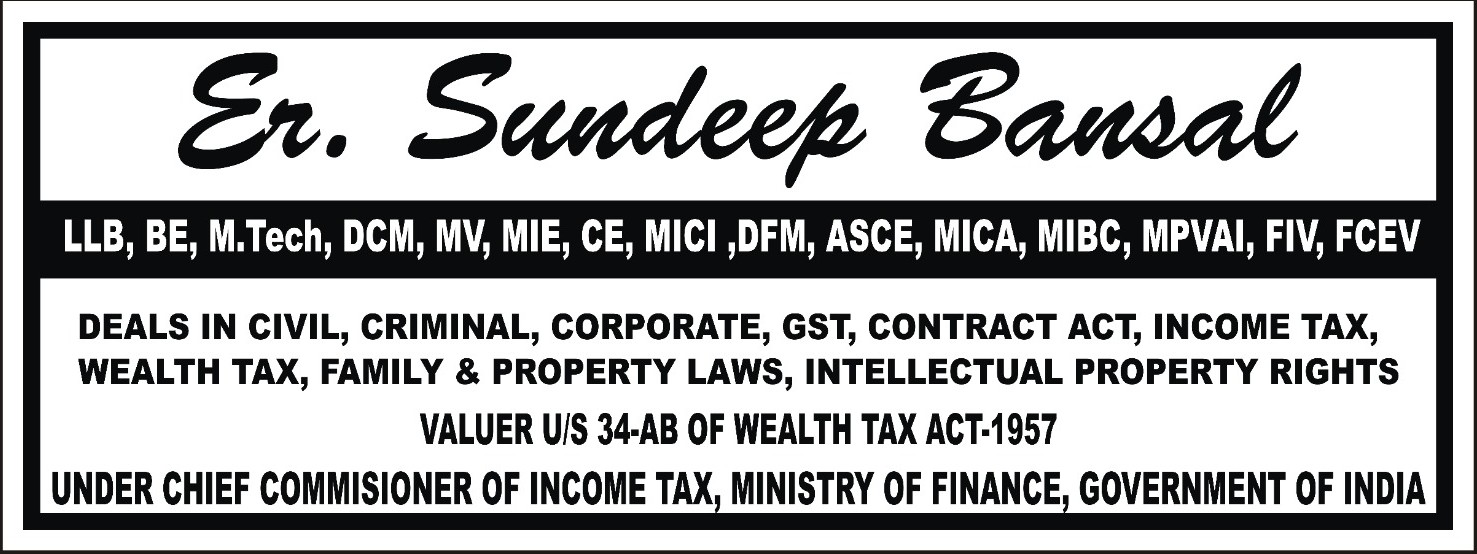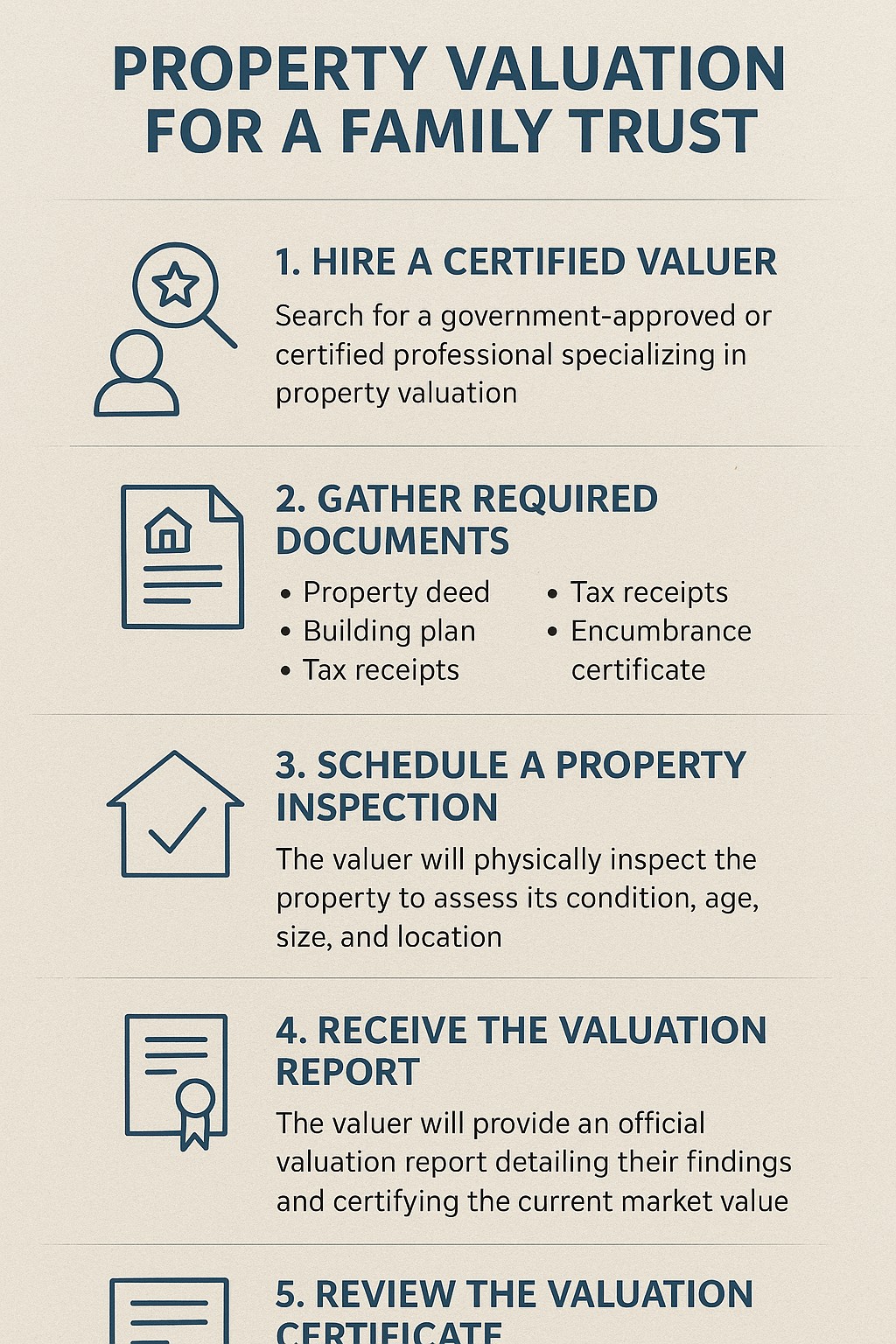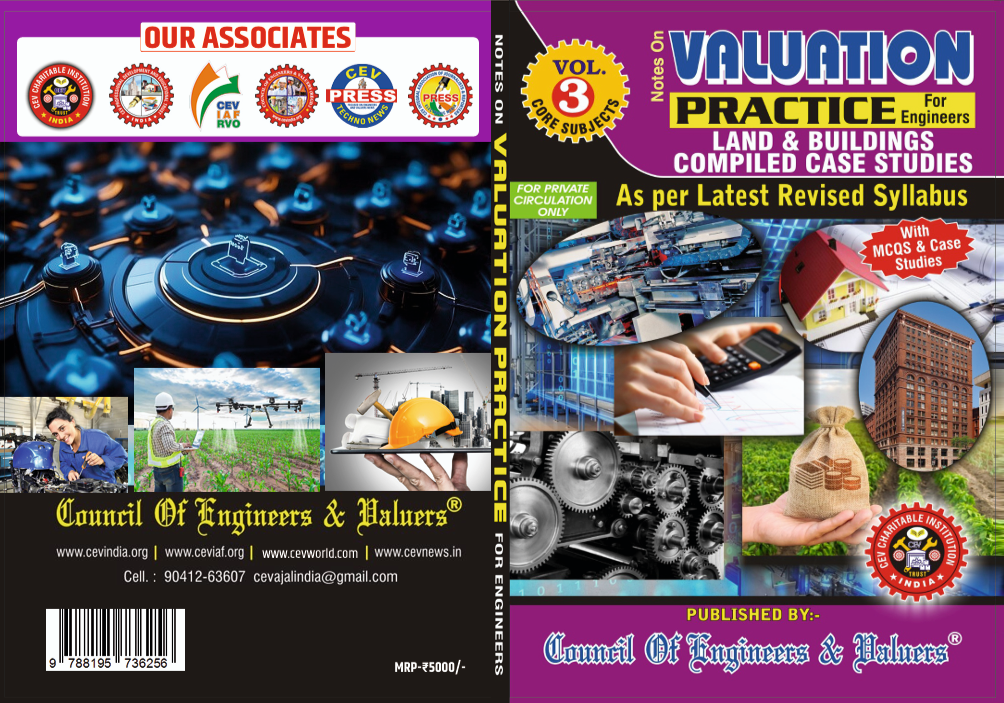FAMILY TRUST PROPERTY VALUATION
A PROFESSIONAL PERSPECTIVE ON WEALTH PROTECTION AND FIDUCIARY RESPONSIBILITY


By: The Council of Engineers and Valuers (CEV)
For Valuers, Estate Planners, and Trustees in India
PRESENTATION SUMMARY
Quick recap
The video presentation focused on the valuation of family trust properties in India, covering the legal framework, fiduciary responsibilities, and the importance of accurate property assessments for taxation and regulatory compliance.
The discussion detailed various aspects of family trusts, including their structure, components, and objectives, while explaining different types of trusts and the necessity of professional property valuation throughout the trust lifecycle.
Practical case studies were presented to demonstrate the application of valuation methods in different trust scenarios, emphasizing the crucial role of certified valuers in ensuring transparency, regulatory compliance, and tax efficiency for family trusts in India.
SUMMARY
Family Trust Property Valuation
The video presentation, part two of a series on family trusts, focuses on the valuation of family trust properties from a professional perspective on wealth protection and fiduciary responsibility.
It is aimed at estate planners, trustees, and valuers in India, building on the introduction of family trusts covered in the previous video.
The discussion emphasizes the critical role of accurate property valuation under trusts for taxation, regulatory compliance, and maintaining fairness among beneficiaries, with reference to the Indian Trusts Act of 1882.
Family Trusts in Indian Law
The discussion focused on family trusts in India, governed by the Indian Trust Act 1882, which outlines fiduciary duties for trustees to act in beneficiaries’ best interests, including obtaining professional valuations of trust property at appropriate intervals.
The conversation highlighted the importance of family trusts for modern wealth management, offering asset protection, succession planning, and tax efficiency, with a focus on the legal framework and compliance requirements under various acts.
The discussion also covered the structure of family trusts, including key components such as the settler, trustee, and beneficiaries, emphasizing the primary objectives of protecting family assets, ensuring wealth transfer across generations, and promoting tax efficiency and estate planning.
Family Trusts and Property Valuation
The discussion explained the concept of a trust, including its components like trustee, beneficiaries, and trust deed, which is a legal document defining objectives, asset management rules, and distribution structure.
Four types of family trusts in India were outlined: private family trust, discretionary trust, revocable and irrevocable trust, and private discretionary trust.
The necessity of property valuation for family trusts was emphasized, highlighting its importance at various stages of a trust lifecycle, including when transferring properties into the trust, supporting estate planning, and ensuring equitable division among beneficiaries upon termination.
Family Trust Property Valuation Procedures
The discussion focused on the procedures and requirements for valuing family trust property, including the appointment of certified valuers and the documentation needed for assessment.
The valuer must be registered with IBBI or a professional body like CEV and is responsible for physically inspecting the property while considering factors like condition, age, and location.
The valuation report must include property details, valuation date, methodologies, and the valuer’s signature, with three approaches available: market approach, income approach, and cost approach.
Family Trust Property Valuation Guide
The discussion focused on property valuation methods for family trusts, covering key factors such as location, neighborhood development, age, structural condition, legal status, and market comparables.
CEV explained that a certified valuer should be hired to inspect the property, gather required documents, and provide an official valuation report detailing findings and certifying market value.
The meeting also highlighted key valuation parameters including location attributes, neighborhood quality, infrastructure, size, condition, age, structure integrity, and comparable market data, while emphasizing the benefits of trust valuation for asset protection and succession planning.
Family Trusts: Benefits and Challenges
The discussion focused on family trusts, highlighting their advantages and challenges. Despite administrative complexities and costs, family trusts offer tax efficiency, preservation of family values, and intergenerational wealth management.
The 5×5 rule allows beneficiaries to withdraw a portion of the trust corpus annually, balancing liquidity and asset preservation. While there is no statutory minimum corpus required to establish a family trust, practical viability suggests a financial meaningful asset base to justify administrative costs.
As India’s high net worth families increasingly adopt trust structures for wealth protection, professional valuers play a crucial role in ensuring transparency, accountability, and market integrity.
Family Trust Valuation Case Studies
The meeting discussed practical case studies on family trust property valuation, focusing on three examples. The first case involved valuing a residential property transferred into a family trust in Bangalore, requiring an assessment for stamp duty and trust accounting purposes.
The second case addressed a dispute between siblings over a commercial shop in Pune, where both income and market approaches were applied to determine a fair valuation.
The third case studied the dissolution of a family trust in Gujarat holding agricultural land, requiring equitable distribution among beneficiaries.
The discussion highlighted the importance of professional valuation expertise in family trust matters, emphasizing the role of certified valuers in ensuring transparency, regulatory compliance, and tax efficiency while preventing disputes.
Introduction
The valuation of family trust property has emerged as a critical component of wealth management, estate planning, and fiduciary governance in India. In a dynamic legal and economic environment, determining the accurate market value of assets held under a trust is essential not only for taxation and regulatory compliance but also for maintaining transparency and fairness among beneficiaries.
The Indian Trusts Act, 1882 provides the legal framework for the creation and management of private trusts, including family trusts. Under this Act, the trustee bears a fiduciary duty to act in the best interest of the beneficiaries, which includes obtaining a professional valuation of the trust property at appropriate intervals.
Family Trusts have become a vital component of modern wealth management in India, offering structured asset protection, succession planning, and tax efficiency. As the number of high-net-worth families and complex asset portfolios increase, so does the need for accurate and certified valuation of trust property.
Valuation is not merely a financial exercise — it is a fiduciary responsibility, essential for compliance under the Indian Trusts Act, 1882, the Income Tax Act, and, where applicable, the Companies Act under IBBI regulations.
This article offers comprehensive insights into Family Trust valuation, accompanied by practical case studies that illustrate real-world valuation methodologies and challenges.
Understanding Family Trusts
A Family Trust is a private arrangement established to manage and protect assets for the benefit of specific family members or future generations. It ensures orderly wealth distribution, asset protection, and continuity of family values. The key legal foundation lies in the Indian Trusts Act, 1882, complemented by relevant provisions under the Income Tax Act for taxation and reporting.
Primary Objectives of a Family Trust
-
Protecting family assets from legal claims and external liabilities
-
Ensuring structured wealth transfer across generations
-
Supporting dependents through disciplined asset management
-
Promoting tax efficiency and estate planning
Structure of a Family Trust
A typical family trust involves the following key components:
-
Settlor – The person who creates the trust and transfers assets into it.
-
Trustee – The individual or institution responsible for managing the assets in accordance with the trust deed.
-
Beneficiaries – The family members entitled to receive benefits from the trust.
-
Trust Deed – The legal document defining the trust’s objectives, asset management rules, and distribution structure.
-
Trust Property – The corpus of assets (movable or immovable) forming the trust’s financial base.
Types of Family Trusts in India
1. Private Family Trust
Created to benefit identified family members, with the Trust Deed explicitly defining their respective shares and entitlements.
2. Discretionary Trust
Here, the trustee exercises discretion in determining how and when the beneficiaries receive distributions, offering flexibility for diverse family needs.
3. Revocable and Irrevocable Trusts
-
Revocable Trust – The settlor retains the right to modify or dissolve the trust.
-
Irrevocable Trust – Once established, it cannot be altered by the settlor, thereby providing enhanced asset protection and tax benefits.
4. Private Discretionary Trust
A blend of private and discretionary features where trustees can decide on distribution patterns, making it suitable for complex or high-net-worth family structures.
Necessity of Family Trust Property Valuation
Professional valuation is essential at multiple stages of a trust’s lifecycle. The following scenarios highlight the necessity and timing of valuation exercises:
-
Transferring Property into the Trust
When the settlor transfers assets into the trust, an independent valuation establishes fair market value for stamp duty and legal compliance. -
Estate Planning
Valuations support strategic tax and estate planning, ensuring transparency and fairness in future distributions. -
Dissolving the Trust
Upon termination, an updated valuation ensures equitable division among beneficiaries, preventing disputes and litigation. -
Selling Trust Property
Before sale, a valuation determines the market value, which becomes crucial for capital gains tax calculation. -
Refinancing or Buyout Situations
When a beneficiary wishes to buy another’s share, valuation guarantees that the transaction reflects fair market value.
Authority to Conduct Valuation
Valuations of trust property must be conducted by independent, certified professionals to ensure impartiality and compliance.
1. Registered Valuer
Professionals recognized under the Companies (Registered Valuers & Valuation) Rules, 2017.
As per the Companies (Registered Valuers and Valuation) Rules, 2017, only valuers registered with the IBBI (Insolvency and Bankruptcy Board of India) can undertake such assignments for regulatory or financial reporting purposes.
2. Government-Appointed Bodies
In certain cases, government agencies may be authorized to issue valuation certificates, particularly when trust assets include public or quasi-public property.
3. Chartered Engineers and Valuers
Members of professional bodies such as the Council of Engineers and Valuers (CEV) & other similar organisations play a significant role in providing technically sound, legally compliant valuation reports recognized by judicial and financial institutions.
Procedure for Family Trust Property Valuation
1. Appointment of a Certified Valuer
The trustee must appoint a qualified professional, verifying credentials through official registers or professional bodies such as CEV & similar organisations or IBBI.
2. Collection of Documentation
Essential documents include:
-
Title Deed and Property Ownership Records
-
Approved Building Plans and Layouts
-
Municipal Tax Receipts
-
Encumbrance Certificate (EC)
-
Past Valuation Reports (if any)
- Trust Deed clauses affecting ownership
3. Physical Inspection
The valuer inspects the property to assess condition, age, area, and locational attributes affecting market value.
4. Valuation Report Preparation
The certified valuer issues a Valuation Certificate containing:
-
Property identification details
-
Valuation date
-
Methodology applied
-
Current fair market value
-
Certification and signature of the valuer
5: Application of Valuation Method
Valuers may apply:
- Market Approach (Sale Comparison Method)
- Income Approach (Rent capitalisation or discounted cash flow)
- Cost Approach (Depreciated Replacement Cost)
6: Issue of Certified Valuation Report
A formal report with FMV, methodology, assumptions, and the valuer’s certification.
Key Factors Influencing Trust Property Valuation
- Location and neighbourhood development
- Age and structural condition
- Legal status and encumbrances
- Market comparables
- Real estate trends
- Income potential (if rented)
- Urban vs. rural land classification

Key Valuation Parameters
Valuers analyze both physical and economic aspects of the property:
-
Location Attributes – Neighborhood quality, infrastructure, and proximity to civic amenities.
-
Size and Condition – Age, structural integrity, and built-up area.
-
Comparable Market Data – Recent sale transactions of similar properties in the area.
-
Prevailing Market Trends – Real estate cycles, interest rates, and economic indicators.
Benefits of Establishing and Valuing a Family Trust
-
Asset Protection
Safeguards assets from creditors, legal disputes, or business risks. -
Succession Planning
Ensures smooth transfer of wealth without probate complexities. -
Tax Efficiency
Optimizes income and estate tax liabilities through strategic structuring. -
Preservation of Family Values
Enables intergenerational wealth management aligned with family ethics and intentions.
Challenges and Limitations
Despite the advantages, family trusts involve:
-
Administrative Complexity – Requires professional management and compliance monitoring.
-
Initial and Ongoing Costs – Legal, registration, and valuation expenses.
-
Regulatory Compliance – Adherence to taxation norms and the Maximum Marginal Rate (MMR) for certain income distributions.
The “5 x 5 Rule” and Minimum Value Concept
A unique provision in trust management is the 5 x 5 Rule, which allows beneficiaries to withdraw the greater of ₹5,000 or 5% of the trust’s corpus annually — balancing liquidity with asset preservation.
There is no statutory minimum corpus required to establish a family trust; however, practical viability suggests a financially meaningful asset base to justify the administrative costs.
In an era of evolving wealth management strategies, Family Trust Property Valuation stands at the crossroads of legal compliance, financial planning, and ethical stewardship. For trustees, beneficiaries, and professional valuers, a well-documented, independent valuation is not merely a statutory formality but a cornerstone of trust governance and intergenerational equity.
As India’s high-net-worth families increasingly adopt trust structures for wealth protection, professional valuers — particularly those registered under CEV and IBBI — play a pivotal role in ensuring transparency, accountability, and market integrity.
Practical Case Studies: How Valuation Works in Real Life
Below are three detailed examples illustrating how valuers conduct family trust valuation assignments.
📘 Case Study 1: Valuation of a Residential Property Transferred into a Family Trust
Background
A settlor in Bengaluru transfers his 2,400 sq. ft. residential house into the “Kumar Family Trust”. The trustee must record FMV for stamp duty and trust accounting.
Valuation Steps Conducted
- Document Verification
- Title deed confirmed in the settlor’s name
- Approved BBMP plan verified
- Encumbrance Certificate (13 years) shows no charge
- The trust deed states a revocable trust
- Physical Inspection
Key findings:
- Built-up area: 2,400 sq. ft.
- Age: 12 years
- Condition: Good, minor repairs
- Location: Indiranagar, a high-demand residential zone
- Valuation Method Used
Market Approach (Comparable Sales Method)
Recent comparable transactions:
| Property | Sale Price | Adjustment |
| A | ₹6.25 Cr | +5% (Better location) |
| B | ₹5.80 Cr | -3% (Smaller area) |
| C | ₹6.10 Cr | Nil |
Adjusted average FMV → ₹6.15 Crore
Certified FMV Issued ₹6.15 Crore (Six Crore Fifteen Lakh Only)
Outcome
This value is recorded as the trust’s opening asset value and used for stamp duty and future capital gains calculations.
📘 Case Study 2: Valuation for Buyout Between Beneficiaries
Background
Two siblings inherit equal beneficial interests under a family trust containing a commercial shop in Pune. One sibling wishes to “buy out” the other.
Valuation Challenge
The shop generates a monthly rent of ₹85,000 and is located in a high-footfall commercial area.
Valuation Approach
Both the Income Approach and the Market Approach were applied, and a weighted average was taken.
- Income Approach (Rent Capitalisation)
Annual rent = ₹85,000 × 12 = ₹10,20,000
Market-derived yield for the locality = 6.5%
FMV (Income Approach) = Annual Rent ÷ Yield = 10,20,000 / 0.065 = ₹1.57 Crore
- Market Approach
Comparable shop sales:
- Shop A: ₹1.52 Cr
- Shop B: ₹1.60 Cr
- Shop C: ₹1.55 Cr
Adjusted FMV = ₹1.56 Crore
- Weighted FMV Calculation
Income Approach = 60% weight
Market Approach = 40% weight
FMV = (1.57 × 0.6) + (1.56 × 0.4) FMV = ₹1.565 Crore
Outcome
Sibling A pays 50% of ₹1.565 Cr = ₹78.25 Lakh to buy 100% ownership.
This prevents disputes and ensures fairness.
📘 Case Study 3: Trust Dissolution and Fair Distribution of Agricultural Land
Background
A family trust in Gujarat holds 6 acres of agricultural land. The trust is being dissolved after 20 years, and the land must be divided among four beneficiaries.
Key Issues Identified
- Mixed land quality
- Partial irrigation
- Fragmentation restrictions under state land laws
- Local market volatility
Valuation Approach
Land Valuation via Comparable Sales + Adjustments
Comparable land sales:
- Plot A: ₹32 lakh/acre
- Plot B: ₹35 lakh/acre
- Plot C: ₹30 lakh/acre
After adjusting for irrigation and road access: Adjusted FMV = ₹33 lakh/acre
Total Land Value = 6 acres × 33 lakh = ₹1.98 Crore
Distribution
Each beneficiary receives property or monetary value equal to: = 1.98 Cr / 4 = ₹49.5 Lakh
Outcome
Trust dissolved successfully with zero disputes, due to professional valuation and equitable allocation.
Benefits & Limitations of Family Trusts (Valuer’s Perspective)
Benefits
- Protects assets from debtors
- Reduces estate disputes
- Ensures smooth intergenerational transfer
- Enables tax-efficient structuring
Limitations
- Requires ongoing professional management
- Involves valuation, legal, and tax expenses
- Compliance under the MMR and the Income Tax Act can be complex
Key Takeaway:
Family Trust property valuation is a technical, legal, and fiduciary responsibility requiring professional expertise. Certified valuers — especially those are members of CEV and registered with IBBI — play a crucial role in ensuring:
- Transparency
- Fairness
- Regulatory compliance
- Tax efficiency
- Dispute prevention
The case studies above highlight how expert valuation supports informed decision-making and protects family wealth across generations.
About the Council of Engineers and Valuers (CEV)
The Council of Engineers and Valuers (CEV) is a premier professional body representing registered valuers, engineers, and technical experts across India. It actively contributes to standard-setting, professional training, and the dissemination of knowledge in valuation, land administration, and fiduciary asset management.
Published by: Council of Engineers and Valuers (CEV)



